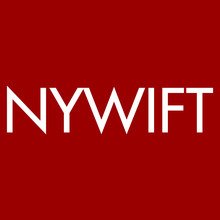As one of the premier studio production companies in New York, Broadway Stages works to meet the growing needs of the film and TV industry while also focusing on the needs of our community. We provide the industry with a soundstage or location where they shoot their scenes, but they also need a skilled and experienced workforce. In this series, we look at the various jobs that make a production come to life. We hope it provides insight and encourages you to consider a career in the film and TV industry. This week, we look at the role of animal trainer.
What's an animal trainer?
Behind every Lassie and Mister Ed is a dedicated animal trainer who teaches them to hit their marks, avoid distractions, and bark or neigh on cue. Despite breakthroughs in computer-generated imagery (CGI) and other technology, many productions employ real-life furry, feathered, or flippered actors, including shows filmed at Broadway Stages.
Different animals respond to different cues and have unique learning styles; what works for a dog might not work for a cat. Some animal trainers specialize in specific species, while others handle everything from bugs to pigs, and snakes to horses.
What does an animal trainer do?
An animal trainer's job begins well before filming and can require being on call 24/7. Animals require exercise, a healthy diet, and playtime, and trainers must understand animal behavior to train and care for a variety of species.
Trainers must also have plenty of space to house and train animals. It is best to train them in areas that resemble film sets so they become accustomed to the bright lights and often chaotic environment. Trainers must also provide top-notch veterinary and grooming care, transportation to safely get animals to and from the set, training equipment, and of course food, treats, and toys.
One of the most important skills for animal actors to learn is hitting their mark. The animal must be in the right place at the right time and be able to perform a specific task on cue. This takes months of practice and requires a ton of patience and treats. Every time an animal gets closer to their mark or completing their task, they get rewarded with positive reinforcement (typically a small treat). Most trainers also use a clicker, which signals to the animal that they have completed the desired task. It is important to train every day to keep the animals' minds sharp.
Some trainers never step foot on the film or television set, instead helping to prepare animals ahead of time. Others work with the animals on set, giving cues off-camera or behind a set piece. This can require running or other physical activity and working in various environments and climates, indoors or outdoors. They must also regularly consult with actors, directors, and others on the set to make sure they are all on the same page and the animal is comfortable. They also must adhere to all American Humane Association guidelines.
Trainers must be compassionate, patient, and quick on their feet. Learn more about the responsibilities and day-to-day work here.
How do I become an animal trainer?
Many animal trainers hold degrees in animal science, pre-veterinary studies, animal behavior, zoology, or marine biology. Some schools offer specific programs, like the Exotic Animal Training Management Program at Moorpark College. Internships at zoos or aquariums can also provide valuable experience.
Related: How I became an animal trainer for movies and television
As is the case with most jobs, working under an experienced trainer is the best way to learn and make connections to break into the business. A general interest in film is also important, and some trainers begin as production assistants to better learn their way around a film set.
Another related role you might consider if you love the TV/Film business and animals is animal coordinator. In this role, an individual acts as a casting agent for a film, tv series or commercial. Similar to the traditional casting agent, the responsibilities include “…reading the script, breaking down all the animal action so you know what is expected of each character as well as notes about their personality and appearance. Then there are meetings with the writers, producers, and director to learn their vision of the animal characters and their actions.”
If you want to learn more about film and TV industry jobs and training, check out the Broadway Stages Industry Resource Guide. Our guide provides information about industry-focused job posting sites; links to general recruiting sites; education and training programs; and state, city, and borough industry information.














